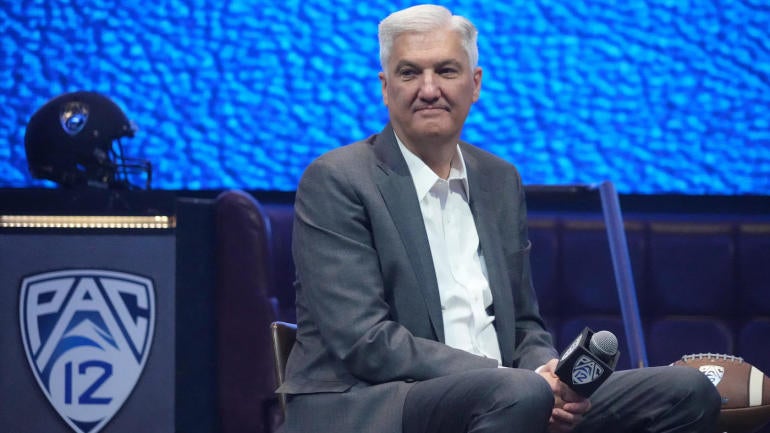
The Pac-12 and commissioner George Kliavkoff have mutually agreed to part ways, the conference announced Friday. Kliavkoff's final day will be February 29 with an announcement concerning new leadership coming sometime next week. Teresa Gould, the conference's deputy commissioner, has been targeted as Kliavkoff's replacement, according to Yahoo Sports.
The change in leadership is hardly a surprise given the effective dissolution of the West Coast's premier athletic conference, which leaves Oregon State and Washington State battling for their future after 10 other members defected to various other power conferences. In December, the Washington Supreme Court granted the two remaining programs -- unofficially known as the "Pac-2" -- control of the conference and all of its assets after some back-and-forth with the departing 10 schools.
"The Pac-12 Conference Board has given the departing 10 schools notice of a proposed leadership transition with an invitation to provide comment," the Pac-12 said in a statement. "We expect to provide more information following a decision in the coming days."
Kliavkoff, a former lawyer who held front-office positions with the MLB and MGM Resorts International, was announced as Pac-12 commissioner in 2021. In May 2022, the Pac-12 sustained its first big blow of Kliavkoff's tenure when USC and UCLA -- two of the conference's most prolific institutions -- announced they were leaving for the Big Ten at the start of the 2024-25 athletic calendar.
Other schools eventually followed suit. In the summer of 2023, it was revealed that Oregon and Washington would follow to the Big Ten while Arizona, Arizona State, Utah and Colorado announced their move to the Big 12. California and Stanford will compete in the ACC starting in 2024.
Failed TV negotiations sealed Kliavkoff's fate
Kliavkoff inherited an expiring television deal, and the Pac-12's downturn can be traced to his inability to solidify a new broadcasting partner. When Texas and Oklahoma announced their move to the SEC in July 2021, the Pac-12 was in a prime opportunity to further carve pieces from the Big 12 and bolster its own ranks.
Bringing in a couple prolific names surely would have enhanced the Pac-12's profile in the eyes of television networks. Instead, the Pac-12 sat on its hands while the Big 12 got to work ensuring its future, recruiting ascendant programs like BYU, Houston, Cincinnati and UCF.
The departure of UCLA and USC made television negotiations almost impossible. In Fall 2022, the Big Ten and Big 12 both signed multi-billion dollar agreements with prolific networks like Fox and ESPN. The SEC and ACC already had iron-clad deals that secured extensive broadcasting rights.
As a result, the Pac-12 was left without a seat at the table after ESPN dropped out of the negotiations in early 2023. Seemingly undaunted, Kliavkoff promised at last July's Pac-12 Media Day that a new deal was close. Less than a week later, Colorado voted to leave the Pac-12.
Still, Kliavkoff presented in August a streaming-centric deal from Apple to his remaining member institutions. A reported base payout of $20 million would have left the Pac-12 woefully behind its power-conference competitors in terms of revenue, and schools were unmoved by the subscription-based incentives.
Just a couple days after reports of the Apple deal surfaced, Oregon, Washington, Arizona, Arizona State and Utah all announced their pending departures, essentially signing the Pac-12's death certificate.





















